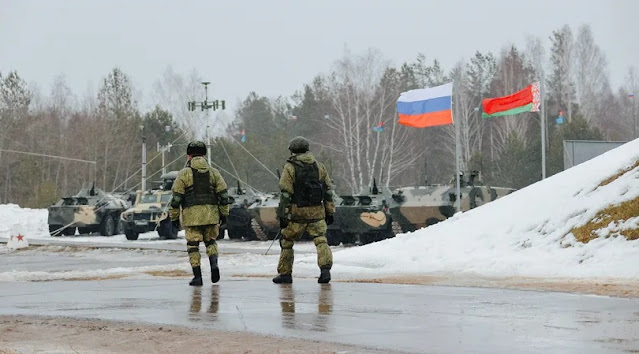Chinese Investments In Afghanistan | China Reaches Out To Taliban Again At Doha Meeting
A Taliban giving a box of Afghan pine nuts to a Chinese minister. This scene happened this Tuesday morning in Doha. The day before, inside a bright room, a delegation from the Afghan interim government , led by Mullah Abdul Ghani Baradar, the Taliban Deputy Prime Minister, and a team of Chinese officials , led by a team of Chinese officials , were sitting around a long table. Wang Yi, Minister of Foreign Affairs of China. It was Wang who received the box of pine nuts at the hands of another senior Taliban official, Amir Khan Muttaqi, Foreign Minister of the current Afghan Executive.
Doha has been the city chosen to host the taliban's highest-level meeting so far with representatives of China since the radicals toppled the US-backed Afghan government in August and established a new regime following the withdrawal of troops. Americans. The Qatari capital also witnessed the first direct talks between a Taliban delegation and US representatives earlier this month.
This was not Wang's first face-to-face meeting with his Afghan interlocutors. On July 28, two weeks before the Taliban took Kabul, the head of Chinese diplomacy received Mullah Baradar in the city of Tianjin, just an hour from Beijing. When extremists swept through Afghanistan, it was not long before China became one of the first countries to make contact with the Taliban.
Beijing pledged from the beginning to help in the reconstruction of Afghanistan - in September it announced aid of 200 million yuan (27 million euros) that includes vaccines and food - as long as the Taliban keep their word to protect. Chinese investments and that the country will not become a nest of terrorists.
Both nations share 60 kilometers of border in the Chinese region of Xinjiang, where the Muslim Uighur ethnic group predominates and which was the scene of several terrorist attacks encouraged by groups of Uighurs fled to Afghanistan and Pakistan. China has expressed concern about the Taliban's ties to the East Turkestan Islamic Movement (ETIM), which Beijing considers a terrorist organization for being behind the terrorism in Xinjiang.
Part of the meeting in Doha has revolved around the ETIM. "Afghanistan will keep its promise and will not allow any force to use its territory to harm China," the Chinese media highlighted. According to the Chinese news agency Xinhua, Wang Yi has asked the Taliban for guarantees that they will make a "clean break" with the ETIM.
"Wang told the acting vice premier of the interim Taliban government that he hopes Kabul will crack down on ETIM and other terrorist groups," the agency said, also underlining a request by the Chinese minister addressed to "the countries led by the United States" to lift sanctions on Afghanistan and "work with the Afghan Taliban in a rational and pragmatic way" to help the country move forward.
د اسلامي امارت د بهرنيو چارو وزیر محترم مولوي اميرخان متقي صاحب لخوا د چين د بهرنيو چارو وزیر وانګ يې ته ځنغوزي په تحفه کې ورکړل شول چې د هغه له هرکلي سره مخ شو. pic.twitter.com/tVxTGAvAdM
— Zabihullah (..ذبـــــیح الله م ) (@Zabehulah_M33) October 26, 2021
"Wang expressed hope that the Taliban will show more openness and tolerance, unite all ethnic groups and factions in Afghanistan to work together for peaceful reconstruction, and protect the rights and interests of women and children," the Xinhua report continues. . "The Chinese official also urged to adopt a friendly policy towards its neighboring countries and to build a modern country that conforms to the wishes of the people, as well as the trend of the time," he said.
The Chinese agency collects the words of Mullah Baradar, who assured that the Taliban are willing to "protect the rights and interests of women and children, and will not deprive them of the rights to education and work."
Since the radicals took control of Afghanistan, China has officially insisted that it does not intend to fill the void left by the United States and that it will follow its sacred principle of non-interference in the affairs of other countries. Instead, from Beijing they have seen a political and business opportunity in the withdrawal of US troops to consolidate their dominance in a region they consider their backyard.
Chinese companies have had little presence in Afghanistan in recent years. According to the latest available data from the Ministry of Commerce (2019), China had around $ 420 million in direct investment there, compared to $ 4.8 billion in neighboring Pakistan. Afghanistan has a rich subsoil (copper, lithium, oil ...), but not the infrastructure and industry necessary to extract them on a large scale. That is where the hand of Beijing would appear, which has been negotiating concessions to exploit the deposits since the end of August.





Comments
Post a Comment